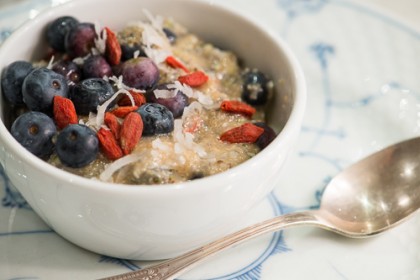According to a book on Dietary Reference Intake published by the Institute of Medicine many common problems can be signs of zinc deficiency “Because of the ubiquity of zinc and the involvement of this micronutrient in so many core areas of metabolism, it is not surprising that the features of zinc deficiency are frequently quite basic and nonspecific, including growth retardation, alopecia, diarrhea, delayed sexual maturation and impotence, eye and skin lesions, and impaired appetite.”1 The good news is that a study on zinc deficiency and growth indicates this can be corrected in part by zinc supplementation.
Many foods contain zinc including red meat, poultry, beans, nuts and whole grains. But phytates (found in grains and plant sources of zinc) can bind to zinc and inhibit it’s absorption making it less available.2 Because many children get extra zinc from processed food that has been supplemented, you might end up getting less zinc if you eat more whole foods. Because gluten free foods are often not fortified, it makes supplementation critical for kids on a gluten free diet.
We use zinc lozenges from Country Life which can be a chewable supplement or used sublingually. They have a store locator on the website.
1. Dietary Reference Intakes for Vitamin A, Vitamin K, Arsenic, Boron, Chromium, Copper, Iodine, Iron, Manganese, Molybdenum, Nickel, Silicon, Vanadium, and Zinc (2000) p. 447
2.http://ods.od.nih.gov/FactSheets/Zinc.asp
____________________________________________________________________
Related posts:
Whole Grains and Calcium
Nutritionists
Testing:
Iron and Anemia




Lauren - This is such great information – I shared it with D last night and he was really interested. Thanks for letting me know about it.
xo
Anonymous - because gluten consumption is a zinc drain, gluten free diets help elevate zinc all by themselves.
healthy people in low gluten societies (thailand study) have zinc levels around 18 umol/L.